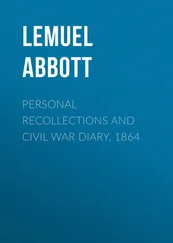James Ritchie - East Anglia - Personal Recollections and Historical Associations
Здесь есть возможность читать онлайн «James Ritchie - East Anglia - Personal Recollections and Historical Associations» — ознакомительный отрывок электронной книги совершенно бесплатно, а после прочтения отрывка купить полную версию. В некоторых случаях можно слушать аудио, скачать через торрент в формате fb2 и присутствует краткое содержание. Жанр: foreign_prose, на английском языке. Описание произведения, (предисловие) а так же отзывы посетителей доступны на портале библиотеки ЛибКат.
- Название:East Anglia: Personal Recollections and Historical Associations
- Автор:
- Жанр:
- Год:неизвестен
- ISBN:нет данных
- Рейтинг книги:5 / 5. Голосов: 1
-
Избранное:Добавить в избранное
- Отзывы:
-
Ваша оценка:
- 100
- 1
- 2
- 3
- 4
- 5
East Anglia: Personal Recollections and Historical Associations: краткое содержание, описание и аннотация
Предлагаем к чтению аннотацию, описание, краткое содержание или предисловие (зависит от того, что написал сам автор книги «East Anglia: Personal Recollections and Historical Associations»). Если вы не нашли необходимую информацию о книге — напишите в комментариях, мы постараемся отыскать её.
East Anglia: Personal Recollections and Historical Associations — читать онлайн ознакомительный отрывок
Ниже представлен текст книги, разбитый по страницам. Система сохранения места последней прочитанной страницы, позволяет с удобством читать онлайн бесплатно книгу «East Anglia: Personal Recollections and Historical Associations», без необходимости каждый раз заново искать на чём Вы остановились. Поставьте закладку, и сможете в любой момент перейти на страницу, на которой закончили чтение.
Интервал:
Закладка:
A writer in the Harleian Miscellany says that ‘Southwold, of sea-coast town, is the most beneficial unto his Majesty of all the towns in England, by reason all their trade is unto Iceland for lings.’ In the little harbour of Southwold you see nowadays only a few colliers, and I fear that the place is of little advantage to her Majesty, however beneficial it may be as a health-resort for some of her Majesty’s subjects. It is a place, gentle reader, where you can wander undisturbed at your own sweet will, and can get your cheeks fanned by breezes unknown in London. The beach, I own, is shingly, and not to be compared with the sands of Yarmouth and Lowestoft; but, then, you are away from the Cockney crowds that now infest these places at the bathing season, and you are quiet – whether you wander on its common, till you come to the Wolsey Bridge, getting on towards Halesworth, where, if tradition be trustworthy, Wolsey, as a butcher’s boy, was nearly drowned, and where he benevolently caused a bridge to be erected for the safety of all future butcher-boys and others, when he became a distinguished man; or ramble by the seaside to Walberswick, across the harbour, or on to Easton Bavent – another decayed village, on the other side. Southwold has its historical associations. Most of my readers have seen the well-known picture of Solebay Fight at Greenwich Hospital. Southwold overlooks the bay on which that fight was won. Here, on the morning of the 28th May, 1672, De Ruyter, with his Dutchmen, sailed right against those wooden walls which have guarded old England in many a time of danger, and found to his cost how invincible was British pluck. James, Duke of York – not then the drivelling idiot who lost his kingdom for a Mass, but James, manly and high-spirited, with a Prince’s pride and a sailor’s heart – won a victory that for many a day was a favourite theme with all honest Englishmen, and especially with the true and stout men who, alarmed by the roar of cannon, as the sound boomed along the blue waters of that peaceful bay, stood on the Southwold cliff, wishing that the fog which intercepted their view might clear off, and that they might welcome as victors their brethren on the sea. I can remember how, when an old cannon was dragged up from the depths of the sea, it was supposed to be, as it might have been, used in that fight, and now is preserved at one of the look-out houses on the cliff as a souvenir of that glorious struggle. The details of that fight are matters of history, and I need not dwell on them. Our literature, also, owes Southwold one of the happiest effusions of one of the wittiest writers of that age; and in a county history I remember well a merry song on the Duke’s late glorious success over the Dutch, in Southwold Bay, which commences with the writer telling —
‘One day as I was sitting still
Upon the side of Dunwich Hill,
And looking on the ocean,
By chance I saw De Ruyter’s fleet
With Royal James’s squadron meet;
In sooth it was a noble treat
To see that brave commotion.’
The writer vividly paints the scene, and ends as follows:
‘Here’s to King Charles, and here’s to James,
And here’s to all the captains’ names,
And here’s to all the Suffolk dames,
And here’s to the house of Stuart.’
Well, as to the house of Stuart, the less said the better; but as to the Suffolk dames, I agree with the poet, that they are all well worthy of the toast, and it was at a very early period of my existence that I became aware of that fact. But the course of true love never does run smooth, and from none – and they were many – with whom I played on the beach as a boy, or read poetry to at riper years, was it my fate to take one as wife for better or worse. In the crowded city men have little time to fall in love. Besides, they see so many fresh faces that impressions are easily erased. It is otherwise in the quiet retirement of a village where there is little to disturb the mind – perhaps too little. I can well remember a striking illustration of this in the person of an old farmer, who lived about three miles off, and at whose house we – that is, the whole family – passed what seemed to me a very happy day among the haystacks or harvest-fields once or twice a year. The old man was proud of his farm, and of everything connected with it. ‘There, Master James,’ he was wont to say to me after dinner, ‘you can see three barns all at once!’ and sure enough, looking in the direction he pointed, there were three barns plainly visible to the naked eye. Alas! the love of the picturesque had not been developed in my bucolic friend, and a good barn or two – he was an old bachelor, and, I suppose, his heart had never been softened by the love of woman – seemed to him about as beautiful an object as you could expect or desire. One emotion, that of fear, was, however, I found, strongly planted in the village breast. The boys of the village, with whom, now and then, I stole away on a birds’-nesting expedition, would have it that in a little wood about a mile or two off there were no end of flying serpents and dragons to be seen; and I can well remember the awe which fell upon the place when there came a rumour of the doings of those wretches, Burke and Hare, who were said to have made a living by murdering victims – by placing pitch plasters on their mouths – and selling them to the doctors to dissect. At this time a little boy had not come home at the proper time, and the mother came to our house lamenting. The good woman was in tears, and refused to be comforted. There had been a stranger in the village that day; he had seen her boy, he had put a pitch plaster on his mouth, and no doubt his dead body was then on its way to Norwich to be sold to the doctor. Unfortunately, it turned out that the boy was alive and well, and lived to give his poor mother a good deal of trouble. Another thing, of which I have still a vivid recollection, was the mischief wrought by Captain Swing. In Kent there had been an alarming outbreak of the peasantry, ostensibly against the use of agricultural machinery. They assembled in large bodies, and visited the farm buildings of the principal landed proprietors, demolishing the threshing machines then being brought into use. In some instances they set fire to barns and corn-stacks. These outrages spread throughout the county, and fears were entertained that they would be repeated in other agricultural districts. A great meeting of magistrates and landed gentry was held in Canterbury, the High Sheriff in the chair, when a reward was offered of £100 for the discovery of the perpetrators of the senseless mischief, and the Lords of the Treasury offered a further reward of the same amount for their apprehension; but all was in vain to stop the growing evil. The agricultural interest was in a very depressed state, and the number of unemployed labourers so large, that apprehensions were entertained that the combinations for the destruction of machinery might, if not at once checked, take dimensions it would be very difficult for the Government to control. When Parliament opened in 1830, the state of the agricultural districts had been daily growing more alarming. Rioting and incendiarism had spread from Kent to Suffolk, Norfolk, Surrey, Hampshire, Wiltshire, Berkshire, Buckinghamshire, Huntingdonshire, and Cambridgeshire, and a great deal of very valuable property had been destroyed. A mystery enveloped these proceedings that indicated organization, and it became suspected that they had a political object. Threatening letters were sent to individuals signed ‘Swing,’ and beacon fires communicated from one part of the country to the other. With the object of checking these outrages, night patrols were established, dragoons were kept in readiness to put down tumultuous meetings, and magistrates and clergymen and landed gentry were all at their wits’ ends. Even in our out-of-the-way corner of East Anglia not a little consternation was felt. We were on the highroad nightly traversed by the London and Yarmouth Royal Mail, and thus, more or less, we had communications with the outer world. Just outside of our village was Benacre Hall, the seat of Sir Thomas Gooch, one of the county members, and I well remember the boyish awe with which I heard that a mob had set out from Yarmouth to burn the place down. Whether the mob thought better of it, or gave up the walk of eighteen miles as one to which they were not equal, I am not in a position to say. All I know is, that Benacre Hall, such as it is, remains; but I can never forget the feeling of terror with which, on those dark and dull winter nights, I looked out of my bedroom window to watch the lurid light flaring up into the black clouds around, which told how wicked men were at their mad work, how fiendish passion had triumphed, how some honest farmer was reduced to ruin, as he saw the efforts of a life of industry consumed by the incendiary’s fire. It was long before I ceased to shudder at the name of ‘Swing.’
Читать дальшеИнтервал:
Закладка:
Похожие книги на «East Anglia: Personal Recollections and Historical Associations»
Представляем Вашему вниманию похожие книги на «East Anglia: Personal Recollections and Historical Associations» списком для выбора. Мы отобрали схожую по названию и смыслу литературу в надежде предоставить читателям больше вариантов отыскать новые, интересные, ещё непрочитанные произведения.
Обсуждение, отзывы о книге «East Anglia: Personal Recollections and Historical Associations» и просто собственные мнения читателей. Оставьте ваши комментарии, напишите, что Вы думаете о произведении, его смысле или главных героях. Укажите что конкретно понравилось, а что нет, и почему Вы так считаете.












